
Enhancing Student Outcomes and Teacher Practice through Math Mastery: A Comprehensive Study Tour and Curriculum Framework Development.
As a primary school teacher with ten years of classroom experience, I’ve had the opportunity to teach across year levels from Prep to Year 3. Throughout my teaching journey, I’ve developed a strong passion for ensuring that every student feels a sense of success in the classroom and equally, that every teacher feels confident and equipped to deliver high-quality lessons. Over time, I’ve become increasingly interested in how we can bring greater consistency and clarity to the way we teach mathematics across the early years.
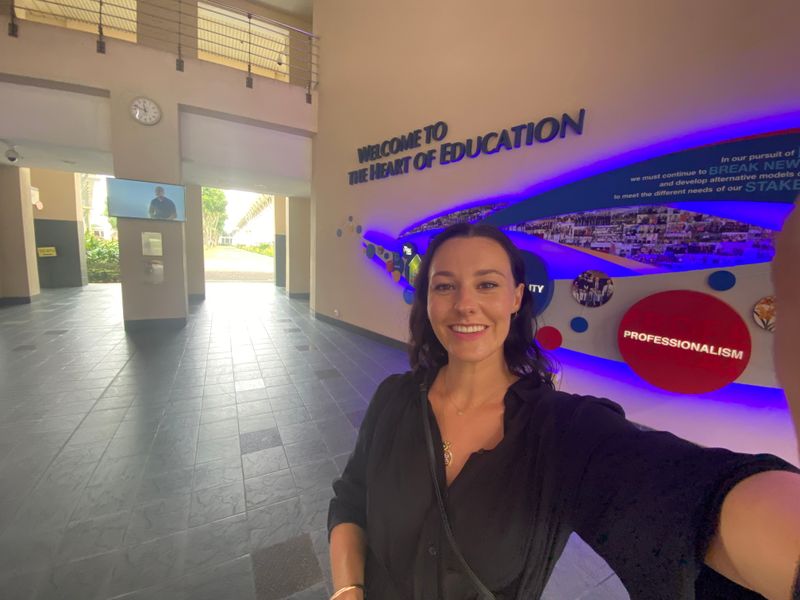
In 2024, I was fortunate to be awarded the inaugural Toowoomba Grammar School Teaching Fellowship to explore this interest more. My proposal, titled Enhancing Student Outcomes and Teacher Practice through Math Mastery: A Comprehensive Study Tour and Curriculum Framework Development, focused on investigating how the Math Mastery approach could strengthen both student understanding and teacher instruction in mathematics. This opportunity took me to Singapore to investigate the Math Mastery approach - an internationally recognised model of mathematics instruction that supports every student to achieve deep understanding through carefully sequenced, explicit teaching.
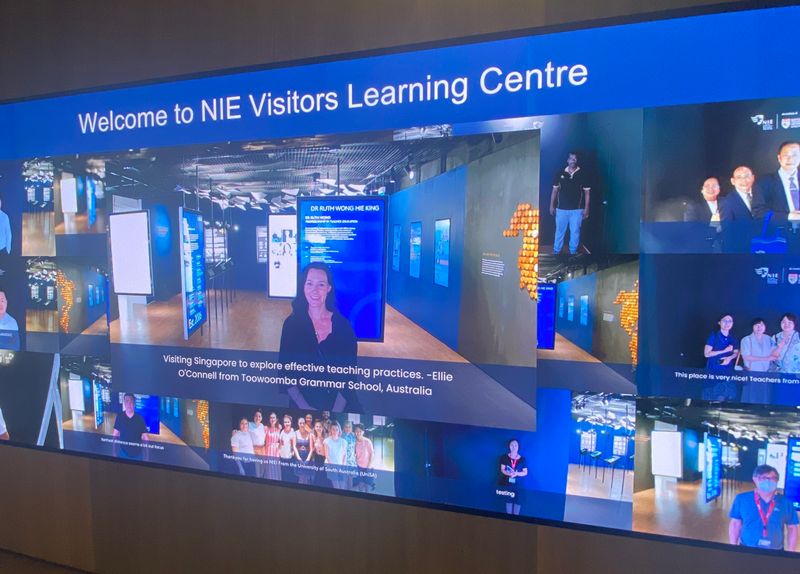
Why Mathematics? Why Now?
Across Australia, there is growing national concern about the long-term decline in mathematics achievement. Reports such as the Gonski Review (2018) highlight that many students are not mastering the basic skills needed for future learning, and that teachers need more explicit, structured tools to support all learners. In the early years of schooling—where concepts are first introduced, and mathematical mindsets are formed—it’s crucial that instruction is clear, consistent and effective. Gaps in understanding at this stage can have long-lasting effects on a child’s confidence and progress. The fellowship was an opportunity to examine international best practices and bring back evidence-informed strategies that could enhance both student outcomes and teacher practice in our own School.
Learning from Singapore: Schools and Insights
During my study tour in Singapore, I visited two leading international schools: Dulwich College and Invictus International School. Both schools use mastery-based approaches to mathematics, with structured, well-sequenced programs designed to develop deep conceptual understanding. At Dulwich College I observed math lessons from Years 1 to 5 that emphasised both mastery and practical application. The classrooms fostered a calm, focused learning environment in which teachers guided students through new concepts using clear, structured instruction, ensuring mastery through modelling, guided practice and checking for understanding before progressing. I also engaged in discussions with the school’s mathematics leadership team, who shared their planning processes and how they support teachers to differentiate within whole-class teaching.
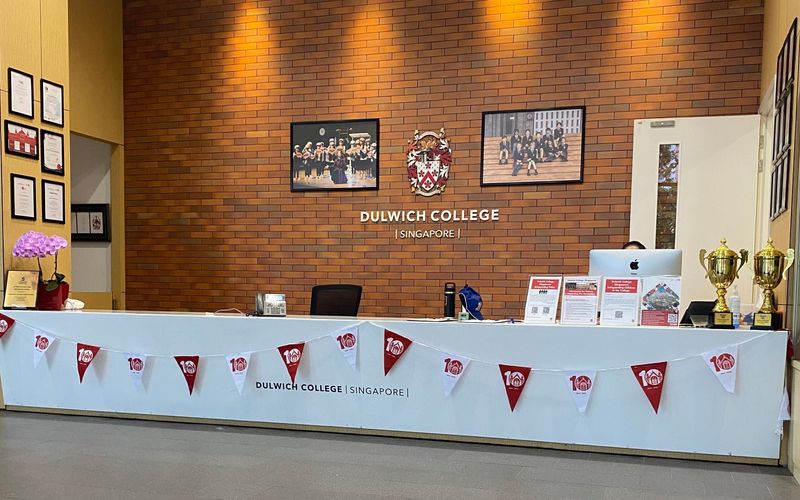
Invictus International School offered a contrasting yet equally valuable perspective. With a diverse cohort of learners and a flexible curriculum model, their team demonstrated how mastery principles can be embedded in a range of contexts. I also had the opportunity to meet with local educational consultants and curriculum developers, who offered insights into how Singapore’s national curriculum supports cumulative learning, daily review and concept mastery from the early years onwards.
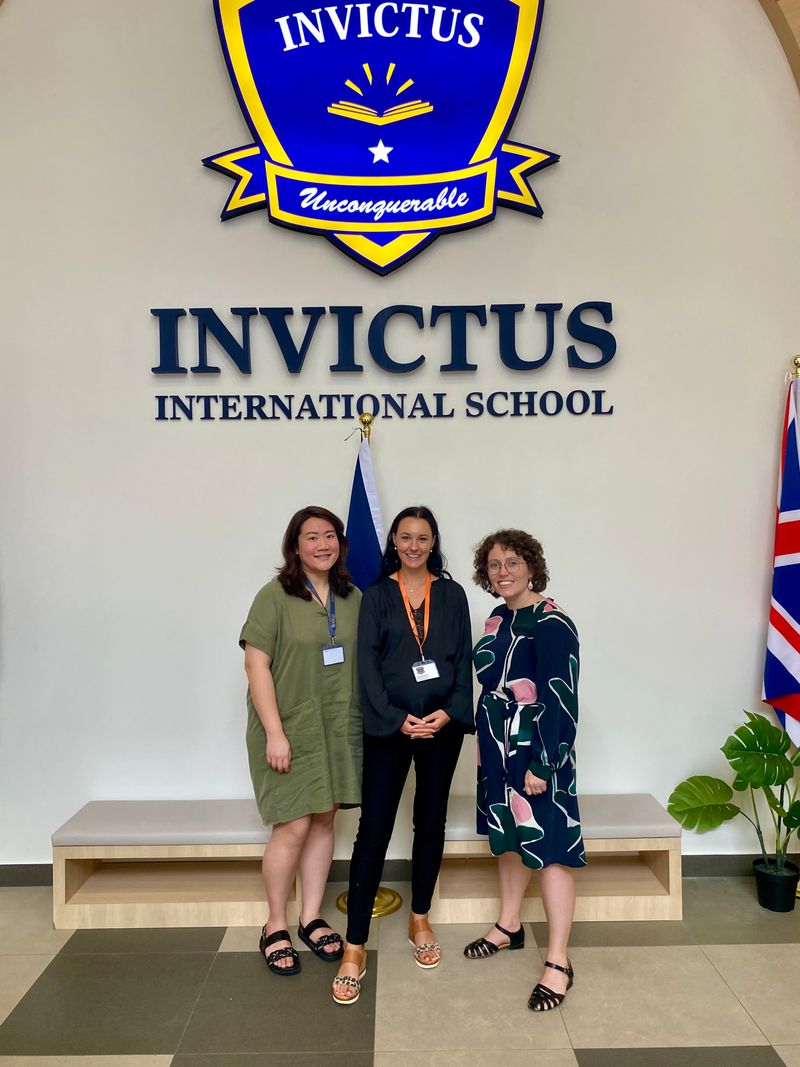
Key Findings: What Makes Mastery Work?
My observations confirmed the power of structured, explicit teaching in building strong foundations in mathematics. These were the key elements that stood out across all settings:
- Clear Learning Objectives
Teachers clearly define what students need to know and be able to do at the end of each unit or lesson.
- Whole-Class Instruction with Embedded Differentiation
Rather than streaming students by ability, mastery classrooms taught concepts to the whole class while using questioning, scaffolding and targeted support to meet individual needs.
- Corrective Instruction
Students who don't achieve mastery receive additional instruction or support to address knowledge gaps.
- Cumulative, Carefully Sequenced Learning
Each lesson built directly on the last, with time allocated for review and consolidation. This ensured that no student was left behind and that concepts were truly understood before new material was introduced.
- Mathematical Language and Reasoning
Teachers modelled precise vocabulary and encouraged students to explain their thinking. This supported deeper reasoning and helped students internalise core concepts.
- Learning Routines
Clear instructional routines and behaviours are established in every classroom, reinforcing expectations and supporting learning.
- Lesson Resources
Hands-on materials and visual examples are carefully chosen to help students connect with new concepts in ways that suit their learning needs.
- Fluency
Essential number facts are practised until automatic, helping students reduce cognitive load, enhancing students’ ability to focus on new and more complex ideas.
- Calm, Confident Learners
Most powerfully, students appeared confident, focused and proud of their mathematical thinking. The clear structure and shared learning journey contributed to a positive and inclusive classroom culture.
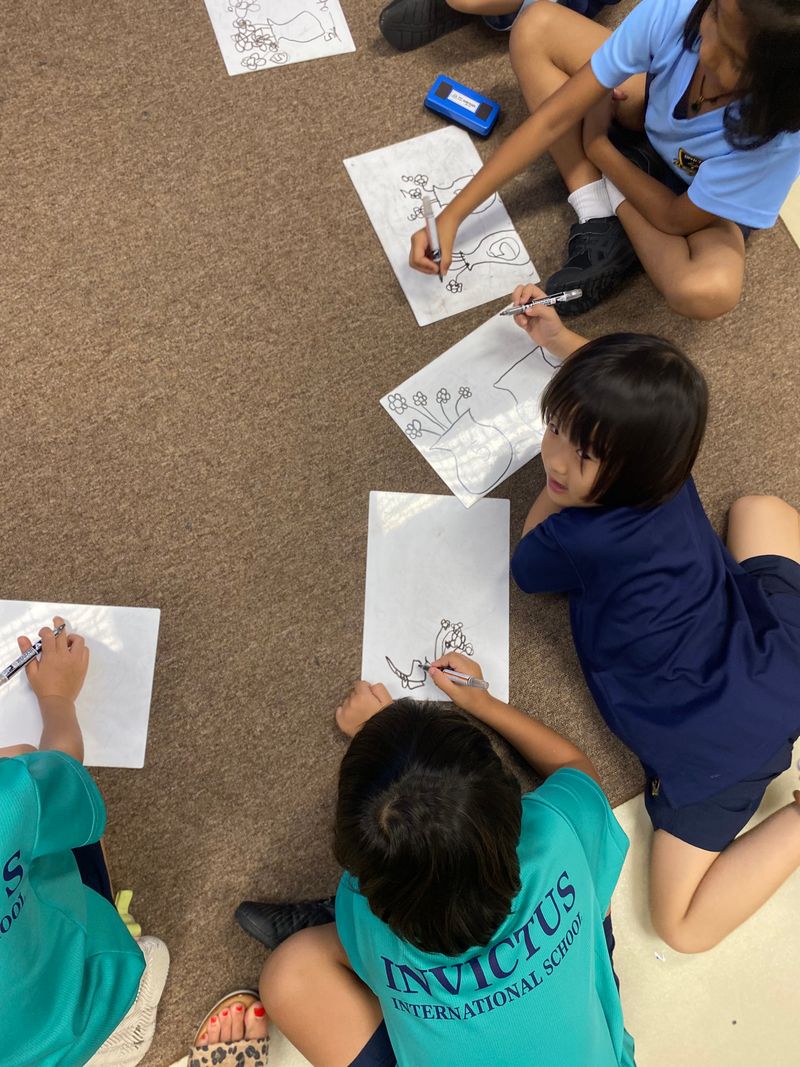
Global Perspective: Insights from Kinder World School
As a part of my research, I was able to engage in a conversation with Peter Baker, Principal Supervisor of 13 KinderWorld International Schools across Vietnam, I was able to dive deeper into how the Math Mastery approach works in large, diverse educational settings. These schools have adopted the Singapore Math model, a mastery-based framework built around explicit teaching and cumulative learning - many of the same principles I explored during my study tour.
Peter shared that their decision to adopt this approach was driven by a need for a consistent, evidence-based program that teachers could pick up quickly, deliver confidently and implement cost-effectively. “We started the explicit teaching model a couple of years back,” he explained. “We call it the KinderWorld Model. Retrieval practice to strengthen knowledge and problem-based application of learning is also included. I think it certainly makes a difference.”
What stood out to me in our discussion was just how closely their journey mirrors our own at TGS. We have already embedded strong practices in literacy through well-structured, whole-school programs that align with explicit teaching and the science of learning. However, mathematics remains an area where we see room for greater consistency and greater gains.
While our data confirms that we continue to perform above the state average in mathematics, recent NAPLAN results highlight a national decline in numeracy - a trend that we are aiming to avoid in our own School’s results. While we continue to do well, we have an opportunity and a responsibility to do even better for our boys. This is not just a local issue. In 2015, the Office of the Chief Scientist collaborated with ACARA to examine schools across Australia that had made significant improvements in numeracy over two years. Their report found that mastery-oriented environments were a consistent feature in high-performing schools (Smith et al., 2028).
When I asked Peter how the performance of his students compared to their peers in Australia, his response was compelling:
“We’ve had feedback from parents - many of whom are teachers - saying that when their children return to Australia, they are at least one to two years ahead in mathematics compared to their peers at home.”
This reinforces what global research has been saying for some time: structured, explicit, mastery-based teaching works. And more importantly, it works for all learners - not just the confident few.
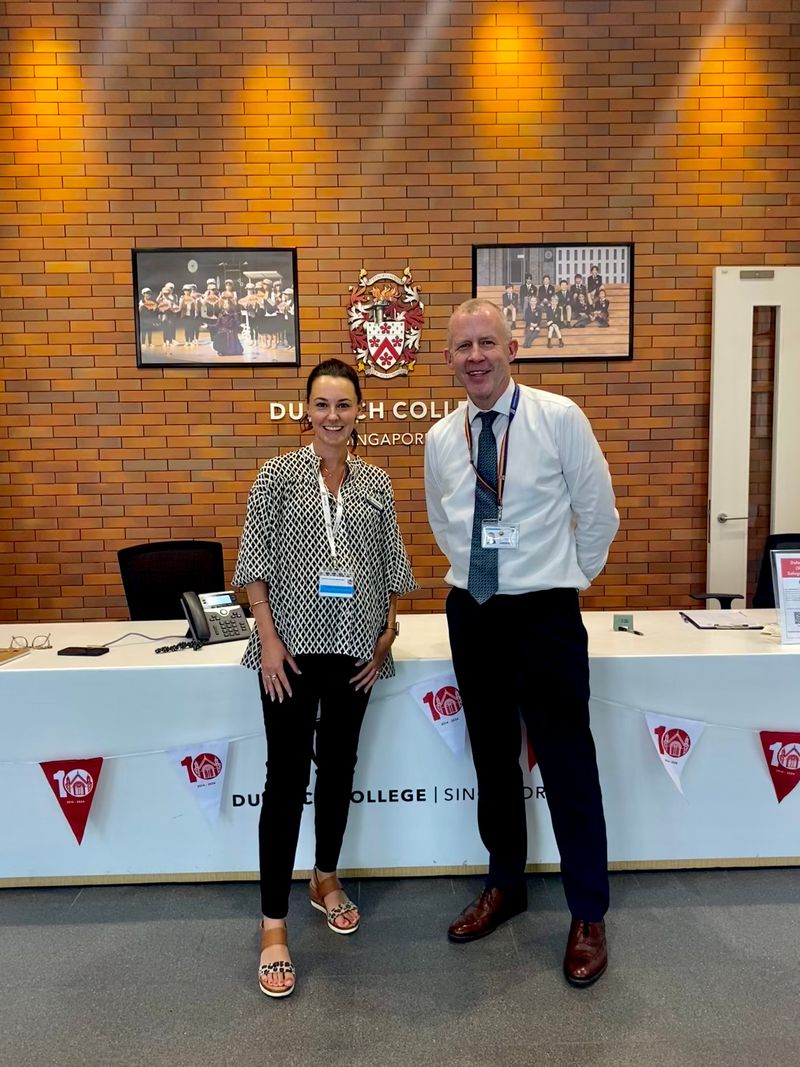
Bringing It Home: What’s Next for TGS?
I’m incredibly grateful for the opportunity this fellowship has provided - not only in shaping and deepening my own practice, but in contributing to a broader, shared vision for mathematics at TGS. This experience reinforced my belief that every student can succeed in mathematics when we give them the right tools, time and teaching. We are now laying the foundations for a clear and united approach to numeracy, one that will equip every boy with the confidence and skills to succeed - not just in the classroom, but throughout their schooling and beyond. And just as importantly, we’re building a community of confident teachers who are equipped to deliver lessons that are clear, consistent and deeply impactful.
I would like to sincerely thank Dr John Kinniburgh for granting me the opportunity to undertake this Fellowship. His support and encouragement throughout the process has been instrumental, and I am truly grateful for his guidance and mentorship. Dr Kinniburgh’s commitment to prioritising high-quality professional development for staff continues to shape a culture of growth and excellence in teaching and learning at TGS.
Latest Blog
Boys and Belonging at TGS
As a boarding master of adolescent boys, my role fundamentally concerns pastoral wellbeing and character development to support a successful academic journey. A positive sense of belonging — where boarders feel safe, supported and heard — is fundamental to an effective boarding environment. As such, I felt there was a distinct connection between the International Boys’ Schools Coalition’s (IBSC) theme for the 2024–25 Action Research Cohort, “Boys and Belonging” and what I believe is best…
Fostering Growth and Resilience
This philosophy is vividly demonstrated through our Junior School MATES program, an initiative designed to equip boys from Prep to Year 6 with the skills they need to thrive both in and out of the classroom. Year 6 leader Hugo Seaby epitomises what the program is all about. As a leader in Stephens House, he explains its importance: “It’s about spending time with the younger boys and learning about honesty, respect, kindness and other attributes like that.” He said that it’s helpful for the…
Preparing for the Future of Work
For months I have been watching the earthworks being undertaken ahead of construction for the new DET Centre at Toowoomba Grammar School with interest. It is hard to miss, given that the Headmaster’s residence, our family home, is right next to the building site. The vibrations can be unsettling, and the noises are constant. However, each day reminds me of the important work underway to secure a part of the School’s future. Soon, all boys at TGS will have the opportunity to immerse themselves…
“Watch your character, it becomes your destiny.”
Whether it was American essayist Ralph Waldo Emerson, Chinese philosopher Lao Tzu, or even UK Prime Minister Margaret Thatcher’s father who coined the phrase “watch your character, it becomes your destiny,” it was Dr Linda Evans who gave it real relevance to a theatre full of students, staff and families. After a decade and a half in charge of Toowoomba’s respected Fairholme College as Principal and some 22 years in total on staff, Dr Evans will leave the institution she has led and loved by…
Preparation for Boarding: Practical Tips and Tricks
In fact, I’ve coined the phrase “the clearer the runway, the smoother the landing” as a neat summary of this observation. A great deal of boarding experience can be initiated at home in the weeks and months leading up to your son’s departure, helping him prepare psychologically and logistically for his upcoming journey. At TGS, we acknowledge that the boarding journey for boys and families starts long before they enter the house in late January. In the mind of a new boarder and their family,…
Exploring the Role of Neuroscience in Supporting Teenage Boys
Recent insights from neuroscience reveal that the teenage brain undergoes significant changes, particularly in the frontal lobe, which is essential for decision-making, impulse control and emotional regulation. By leveraging this knowledge, we can create supportive environments that guide our boys through the complexities of their teenage years.The Prefrontal Cortex The prefrontal cortex, located in the frontal lobe, is one of the last areas of the brain to mature, significantly impacting…
Remembering Tony Booth OAM
As a schoolboy, Tony excelled at athletics, demonstrating exceptional speed and talent. He went on to win Queensland titles in both the 100 yards and 440 yards, establishing himself as one of the state's premier sprinters. From 1956 to 1989, Tony devoted more than three decades to coaching athletics, cross-country, swimming and rugby at Anglican Church Grammar School (Churchie) in Brisbane, where he became a beloved mentor to countless students. His dedication, expertise and genuine care for…
Wellbeing and Character Development Program — Benefiting Students and Staff Alike
In 2024, the School re-established the Head of Pastoral Care position. The role will be pivotal in supporting all staff to foster a supportive and nurturing environment at Toowoomba Grammar School. Integral to the role’s success is the parallel expansion of the Wellbeing and Character Development (WCD) program to yield multifaceted benefits for both staff and students. For staff, the Head of Pastoral Care provides guidance, support and resources, aiding in their efforts to address students’…
Remembering William Vaughan Hinton OAM
That spirit of curiosity and courage would carry him through a life of service, media innovation and deep care for others. William Vaughan Hinton OAM Vaughan's career began as a cadet reporter at the Toowoomba Chronicle in 1948, followed by work at ABC Radio. This early start launched a lifelong vocation in public service media, built on his belief that stories could shape understanding, challenge assumptions and bring people closer to one another. After completing national service with the…